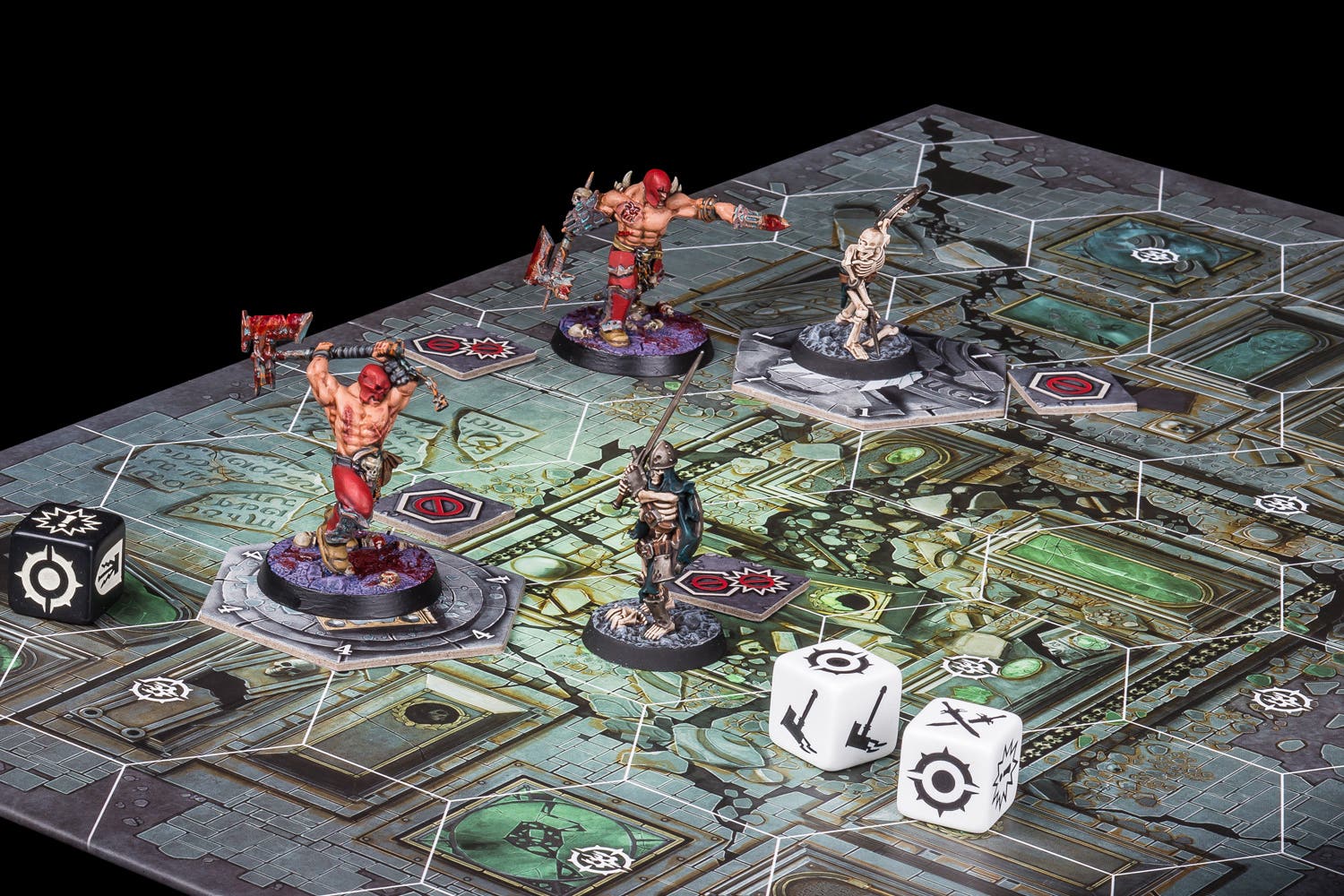Games Workshop brings Warhammer to Britain’s corporate high table.
The business has succeeded because its people know and love their product. At a time when peers can struggle to explain what it is they do, keeping it simple means that stellar returns are no mere fantasy for shareholders, even if they’ve not painted figurines themselves, writes James Moore


Games Workshop’s space marines and chaos lords exploding their way into the FTSE 100? It sounds like a fantasy to those of us who painted its miniatures (badly, in my case) back when they were made of lead and the hobby was a minority – even underground – pursuit.
But at the next quarterly review, the group will take its place among the big kids thanks to a market value that already has it looking down on the likes of EasyJet, Ocado, B&Q owner Kingfisher and property giant Land Securities.
Its latest trading statement drove a flaming axe through analysts’ forecasts; the licensing side of the business wielded the Warhammer with “not less than” £30m generated in the first six months of the financial year vs £13m last time”.
Of course, there is no licensing without the core wargaming business to drive it. But overall revenues are expected to come in at least 10 per cent higher at £260m, with profits of £120m. Warhammer figures always seemed pricey – as those of us whose parents winced at our purchasing habits can relate – but these margins show there’s solid gold in figures made of plastic.
To the blue-chip investors prominently displayed on Games Workshop’s shareholder register – BlackRock, Vanguard, Fidelity, Schroders, abrdn and so on – the hobby is probably an alien world. But the money speaks to them.
Part of the firm’s success has been built on the fact that geek culture has exploded from the bedrooms of outsider kids and into the mainstream.
To the chagrin of the arts graduates who dominate film criticism, superhero movies are still a draw even if the quality has declined of late. Comic-Con sells out wherever its organiser MCM plants its flag. Its gaming tables are reliably full.
But that’s not the only reason for this company’s success. I’d encourage anyone to read the “our business” section of its website. These corporate statements are normally full of verbal diarrhoea such as “synergy”, “bandwidth” and “solutions”. Games Workshop’s spiel begins: “We make the best fantasy miniatures in the world, to engage and inspire our customers, and to sell our products globally at a profit. We intend to do this forever. Our decisions are focused on long-term success, not short-term gains.”
A business that knows what it does and can explain it while acknowledging the need to make a profit, is one you want to be invested in.
It still has the odd corporate foible. While one could hardly accuse it of indulging in rewards for favour, the proposed executive bonuses were sufficiently excessive to spark a shareholder rebellion earlier this year. That will be one to watch as the business kicks on.
It will do that. An Amazon Warhammer series is coming, which will boost both hobby and company if it is a hit. The exploitation of the group’s treasure chest full of intellectual property has barely begun. As it gets going, it will further feed interest, helping Games Workshop to crack international markets. It’s not only in the West that geeks like to play wargames with fantasy miniatures.
One news outlet patronisingly described the figures as “middle-class heroin”. Well, I didn’t feel very middle class painting a war eagle I’d saved up for in our council flat and I doubt that description is apt for some of the fans in countries Games Workshop is pushing its way into.
The chief risk? It is not Warhammer fatigue or even the importation of a CEO who doesn’t understand what makes this company tick. This is a British success story that is just the sort of business that might tempt a flailing American IP giant looking for something shiny and new to deliver a boost to a moribund portfolio.
Such a move could wreck what makes Games Workshop sing. “We make things. We are a manufacturer. Not a retailer,” it says.
Join our commenting forum
Join thought-provoking conversations, follow other Independent readers and see their replies
Comments
Bookmark popover
Removed from bookmarks